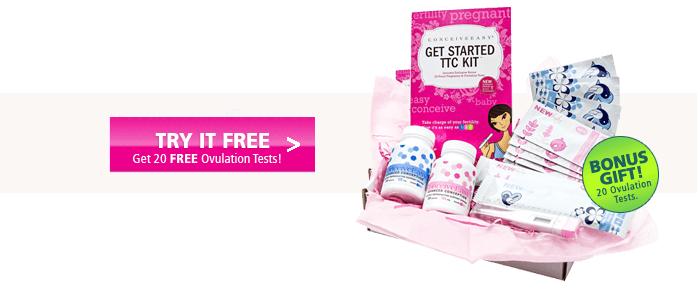When you are trying to conceive, you start to wonder and worry about all sorts of things that you have likely never even thought of before. For example, before trying to conceive, did you wonder about how long your luteal phase was? (Or, be honest, did you even KNOW what a luteal phase was?) The point is, trying to conceive takes us to places we’d never thought we’d go. Today, we’re going to give you some tips if you are trying to lengthen your luteal phase. Claim Your 20 Free Pregnancy Tests – Click Here

The luteal phase of your cycle is the third phase of a woman’s cycle. It is the time between ovulation and the start of your menstrual period. This is also the time when the egg is fertilized and implanted, so it is a very important phase.
If your luteal phase is shorter than 12 days, it is not long enough for the uterus to build up a nourishing lining for the uterus. This might not seem like a big deal, but experts agree that a short luteal phase can result in miscarriage if a pregnancy occurs, because the lining of the uterus will not be strong enough to support the growing fetus. Luckily, there are some ways to lengthen your luteal phase.

The first place to start when you are trying to lengthen your luteal phase, as with most health problems, is with your diet. There are many dietary changes that you can make to potentially improve your luteal phase. Vitamin C, for example, has been shown in several studies to improve fertility in some women who have luteal phase defects. Vitamin C rich foods include citrus fruits, strawberries, papaya, brussel sprouts and bell peppers.
You can also see benefits from introducing more green leafy vegetables into your diet, since they are high in Vitamin B, and aide in hormonal balance. Essential fatty acids, especially Omega-3’s are extremely important for women with short luteal phases as well. Make sure to eat enough fish, nuts and seeds to get plenty of EFA’s!

Progesterone cream is probably the most common treatment for women with short luteal phases. You can purchase it over the counter, and it is very easy to use. You just rub the cream in twice a day, on the inner arms, inner thighs and neck area. You want to use progesterone cream after ovulation and until your period begins. This is a very inexpensive option that helps lots of women.

Antioxidants have also been proven to have a great effect on women who are wishing to lengthen their luteal phase. Many experts say that antioxidants have fertility benefits beyond just lengthening the luteal phase. You can get these antioxidants through supplements, or you can just get them naturally through the foods you eat.
Some of the most helpful antioxidants for fertility are gingko biloba, CoQ10, lipoic acid, vitamins E and C, and glutathione. Ask your doctor if you would like more information about these antioxidants and their help with fertility.










Comments